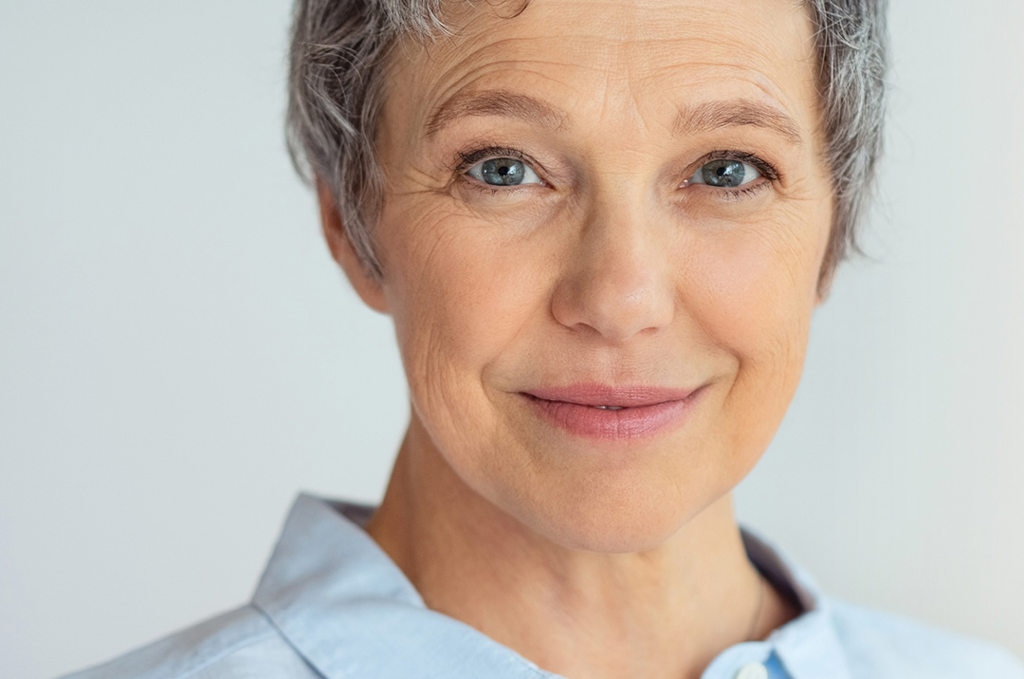
Women’s Health Care in the Second Half of Life
Senior Women’s Care
Once you’re past child-bearing years and through menopause, it may seem like many of your reasons for going to the doctor are past, too. But staying healthy in your senior years means being diligent about preventive care and staying on top of concerns like bone density, cancer prevention, vaccinations, fall prevention, and medication management.
What Are The Unique Health Needs of Senior Women?
As you age, your risk for certain diseases and conditions goes up. Some of those risks are due to the natural decline in estrogen and other hormones that happens as you get older. Others are simply the result of decades of wear and tear on your body. Osteoarthritis, diabetes, heart disease, osteoporosis, and dementia all become more prevalent as women age beyond 50, or after menopause. In addition, it can become more difficult for your immune system to fight off or recover from common illnesses, which is why vaccinations for the flu , pneumonia, and shingles are recommended for seniors.
Preventive Health Screenings For Senior Women
Women should talk with their doctors about a screening schedule based on their individual health history, but the most common recommended screenings include:
Bone Density (DEXA) scan: DEXA (dual energy X-ray absorptiometry) is a test to measure bone density, which decreases as you age, putting you at risk for osteoporosis (or fragile bones). Have a baseline test at age 65. Consider earlier screenings if you break a bone after age 50, or are postmenopausal with risk factors for osteoporosis.
Mammogram: Women ages 50 and older should have a mammogram every one to two years to screen for breast cancer.
Colonoscopy: Women at average risk of colon cancer should have their first colonoscopy at age 50, and then again every 10 years. After age 75, talk with your doctor to weigh the benefits and risks of continued testing.
Blood pressure and cholesterol: Your heart disease risk rises dramatically after menopause. Keeping your blood pressure and cholesterol in the healthy range are two essential steps to keeping your heart healthy. You should check your blood pressure at least once a year after age 40 and have a cholesterol screening every five years until you reach age 55, then get tested every one to two years. If you have high blood pressure or cholesterol, your doctor may recommend more frequent checks.
Blood glucose: Type 2 diabetes risk rises starting at age 45. You should have your blood sugar tested then, and if it’s normal, have it retested every three years. If you are borderline high or if you have other risk factors like being overweight or sedentary or you have a family history of type 2 diabetes, your doctor might recommend more frequent testing.
Hearing testing: Audiology experts recommend a screening every three years starting when you are 50.
Vision testing: Get your eyes checked every year, even if your glasses seem to still be working fine. After age 60, your risks for cataracts, age-related macular degeneration, and glaucoma go up, so be sure to see an ophthalmologist annually.
Mental Health in Senior Women
Women age 55 and older have unique behavioral health needs. Our geriatric mental health units offers inpatient and outpatient care for depression, dementia, anxiety, mental status changes, and many other behavioral health concerns.
Senior Women Health Tips
Taking good care of yourself will help keep you healthy and active well into your senior years. Eating a low-fat, high fiber diet, exercising regularly, and maintaining a healthy weight are three of the simplest ways to enhance your quality of life. There are a few extra steps you can take including:
Fall prevention: In addition to checking your home for tripping hazards like loose throw rugs and cords, work on balance exercises to keep you steadier on your feet.
Vaccinations: Get an annual flu shot. Get a shingles vaccine at age 60 and a pneumococcal vaccine to protect against pneumonia at age 65.
Medication management: Many seniors are taking multiple prescriptions medications. Combine that with pain relievers and supplements and the chances of a dangerous drug interaction increase. Always talk with your doctor and your pharmacist about all prescription and over-the-counter medications, vitamins, and natural supplements you’re taking—especially when you add a new one.
Specialized Nursing Care for Seniors
For women who may need a little extra health care, whether they are recovering from surgery or just needing some nursing care for ongoing health issues, Penn Highlands Healthcare At Home offer a range of home health care services.
For more intensive ongoing health care needs, Penn Highlands offers two skilled nursing facilities— Penn Highlands Elk Pinecrest Manor and Penn Highlands Jefferson Manor.
PH Elk Pinecest Manor in St. Marys is a 138-bed licensed nursing home that provides 24-hour skilled nursing care, long-term care living, and short-term rehabilitative stays following a surgery, illness, or injury, which may require physical therapy, occupational therapy, or speech therapy.
PH Jefferson Manor in Brookville offers skilled nursing, memory care support, personal care, therapy services, and apartment-style living.



